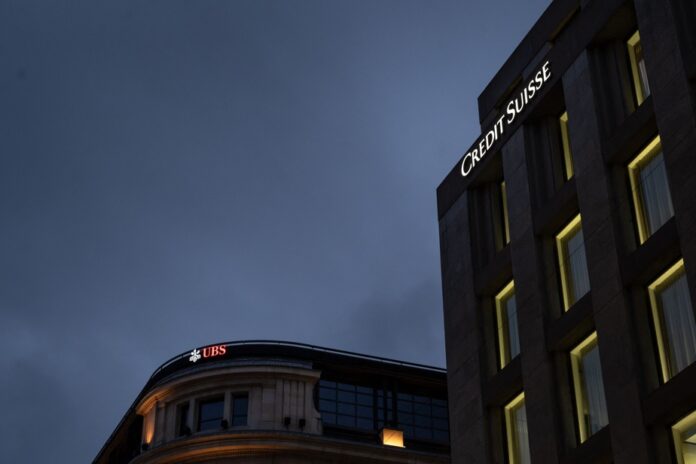(Bern) After intense negotiations, the first Swiss banking group UBS will buy its rival Credit Suisse, said Sunday the President of the Swiss Confederation Alain Berset, believing that this was the best way to “restore trust “.
This solution “is not only decisive for Switzerland […], but for the stability of the entire financial system” worldwide, underlined Mr. Berset during a press briefing in the presence of the presidents of the two banking giants. , Colm Kelleher for UBS and Axel Lehmann for Credit Suisse.
Finance Minister Karin Keller-Sutter said at the press conference that the failure of Credit Suisse could have caused “irreparable economic damage”. “For this reason, Switzerland must assume its responsibilities beyond its own borders. »
The transaction amounts to 3 billion Swiss francs (about 4.4 billion Canadian dollars) payable in UBS shares, or only 76 cents for a Credit Suisse share which was still worth 1.86 Swiss francs on Friday evening.
The merger between these giants, who are both part of the very exclusive club of 30 too big to fail banks, therefore had to be completed and announced in time for the opening of the Asian markets.
The hope being that this may be enough to prevent widespread panic.
The banking sector has been under stress since the major central banks have raised their rates sharply in an attempt to control inflation. Many establishments have failed to prepare after years of having access to cheap money.
The recent bankruptcy of Silicon Valley Bank in the United States and other regional American banks has increased investor anxiety and prompted them to sell the securities of banks considered to be the weak links.
This is the case of Credit Suisse which, for 2 years, has gone from resounding scandals to reverses.
And despite the efforts of its management to tout a three-year restructuring plan, nothing worked. Investors voted with their feet and the Zurich establishment struggled to access liquidity at reasonable prices.
A lifeline of 50 billion Swiss francs launched Wednesday by the Swiss Central Bank, after a black day on the stock market, gave only a brief respite to the bank.
Regulators and the federal government have had to face immense pressure from Switzerland’s main economic partners to clean up the situation before it contaminates the whole world.
According to the Financial Times and tabloid Blick, the bank’s customers withdrew 10 billion Swiss francs in a single day late last week.
UBS will benefit from a guarantee of some 9 billion francs from the government which serves as insurance if problems were to be discovered in very specific Credit Suisse portfolios, Ms Keller-Sutter said.
The Central Bank also grants a liquidity line of up to CHF 100 billion to UBS and Credit Suisse
UBS, which spent several years recovering from the shock of the 2008 financial crisis and a massive state bailout, is beginning to reap the rewards of its efforts and it took tremendous pressure from the authorities for management to the bank accepts to put on the habit of the saviour.
The Competition Commission could also raise eyebrows depending on the configuration of the takeover.
The discussions also focused on the fate of the Swiss branch of Credit Suisse, one of the profitable parts of the group which lost 7.3 billion Swiss francs last year and still expects “substantial” losses in 2023.
This branch brings together retail banking and loans to SMEs. One of the avenues considered by analysts is that of an IPO, which could limit layoffs in Switzerland due to duplication with UBS’s activities.
On Sunday, the bank employees’ union in Switzerland “demanded” the participation of social partners in the discussions, given the “enormous” stakes for employment.















